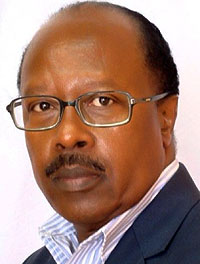I ONCE contributed an article in which I strongly advocated for a national system that scouts for and identifies talent in all areas of human endeavor with the ultimate objective to exploit the talent for the benefit of the individual, family and the nation.


I ONCE contributed an article in which I strongly advocated for a national system that scouts for and identifies talent in all areas of human endeavor with the ultimate objective to exploit the talent for the benefit of the individual, family and the nation.
I further suggested that search for talent should begin at the primary school level if not earlier and once identified appropriate strategies be put in place to direct, nurture, mentor and reward it.
I believed that in every corner of this great country we were sure to find talent in engineering, medicine, education, law, science, arts, sports and even in politics.
My faith in the existence of abundant local talent was recently vindicated when I met Jean-Pierre Turatsinze, a soft spoken Rwandan with amazing skills despite very little formal education.
Jean-Pierre was born the fifth in a family of 11 in the Western Province 45 years ago and due to limited financial means he was not able to go beyond primary school education. He survives by doing odd jobs here and there as an electrician, a trade he says he taught himself.
The first time I met Jean-Pierre was when I was looking for someone to work as a technician in a small solar energy business I was running. With no certificate to prove what he could do he convinced me to give him a shot at the job.
Not only have I retained his services ever since I have also introduced him to several of my colleagues who speak highly of him and have benefited from his skills.
One evening as we were chatting with Jean-Pierre at home, we were left in darkness when electricity went off. He told me he could find a solution to the lighting problem and all I had to do was to buy a battery of at least 80Ah.
A week later he returned with something that looked like an old worn out UPS (computer power backup). He told me it was an inverter which he had made housing it in a discarded UPS casing. In about three hours Jean-Pierre had professionally wired the house and using the battery and inverter we had our own electricity enough to light all the rooms.
My neighbours and visitors are always amazed by the silence of my ‘generator’ whenever power goes off. I have since introduced Jean-Pierre to other people and he continues to manufacture more inverters from the backyard of his tiny home in Kabeza.
Scattered in his backyard are old pieces of wires, discarded casings of UPSs and all sorts of what looks like electronic junk to everyone except Jean-Pierre. This ‘junk’ is what he uses to manufacture his inverters and other electrical appliances like the one below.
Recently Jean-Pierre invited me to his house to show me his latest invention – a professionally designed and packaged welding machine proudly and fittingly labeled ‘Made in Rwanda’.
The machine is quite impressive by any standards. The most impressive feature is its heat tolerance. Whereas imported welding machines of the same size generate a lot of heat and have to be switched off every few hours, Jean-Pierre’s machine can be operated continuously for 12 hours. It is this feature that has made his machine quite popular at construction sites.
I can’t help but keep wondering where Jean-Pierre would be today if there existed a systematic policy of scouting and identifying talent and working with these gifted citizens to develop and exploit it for their sake, the community and for their country.
Jean-Pierre is a very talented young man but completely at a loss as how to develop his talent. The things he can do, without the benefit of formal education like many of us have, are indeed astonishing.
I have no doubt that there are thousands of Jean-Pierres all over the country whose talents are going unnoticed and which could have immensely benefited the country let alone the individuals and their families. After visiting Jean-Pierre’s ‘factory’ we shared ideas on what could be done to help him exploit his talent. I suggested that he could be very helpful at a TVET centre as an instructor but he insisted his skills are in designing and manufacturing. I quickly concurred with him for that is indeed what he does best. This column has been written to try to lay emphasis on the need to do more to identify and tap our hidden talents and to keep my promise to Jean-Pierre to expose his talent in the hope that someone or, better still, an institution will develop an interest in collaborating with Jean-Pierre and who knows – perhaps establish our first truly local welding machine industry and other electrical appliances.


